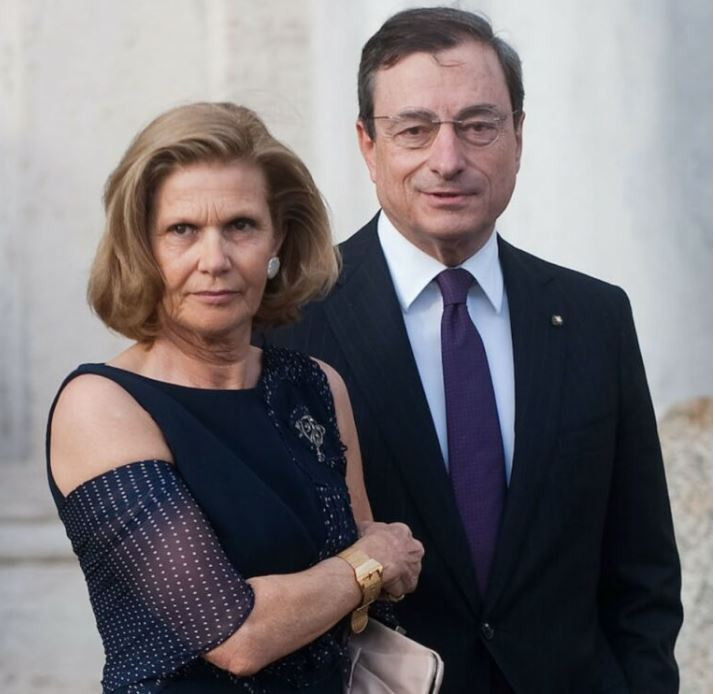When he’s not dealing with political and economic developments, the former ECB president goes just outside Rome to Lavinio, where he’s been seen swimming as well as running
Mario Draghi can rightly be described as a self-made economist of international prestige, who accepted, temporarily, to be active in the field of politics.
He was born in Rome on September 3, 1947, and at the age of just 15, he passed the hardest test of his life: He lost both his parents. His father was an employee at the National Labor Bank Bnl and his mother a pharmacist, in the middle-class Monteverde area of the Eternal City.
He relied on the help of his mother’s sister and immediately became, de facto, a main point of reference for his two younger siblings. He studied at a Jesuit high school, in the center of Rome, the well-known school institute Massimiliano Massimo. He, of course, chose an economic direction for his studies and in 1970 defended his thesis at the University of Rome La Sapienza, which had as its subject “economic integration and change of exchange rates”.
Immediately after that he decided to leave for the United States, where he completed his doctorate at the now prestigious Massachusetts Institute of Technology. He got married before he turned thirty and, in America, always, alongside his studies, he was involved, as much as he could, in sports: Football and basketball, with better performances in the latter.
His friends who were around him at that time, stress that “he wasn’t aggressive enough for football, he didn’t want to push the opponents and didn’t even try to trip.” He preferred a more theoretical, strategic approach, which, indeed, is quite fitting for the “noble sport” of basketball.
He is a public man who promotes an austere, and sometimes stern, profile, but at the same time has a fair amount of irony and self-deprecation. There is no shortage of anecdotes: “A young man who had to undergo a transplant chose the heart of an eighty-year-old banker because he was sure it had never been used,” he jokingly told foreign correspondents a few days ago. The day before yesterday, however, in the intervention in parliament, with obvious emotion, he added: “sometimes, after all, the heart of the central bankers also beats”.
His university career began in Trento, northern Italy, in 1975, and continued in Padua, Venice and Florence, until 1991.
At the same time, however, his career in international financial organizations began: from 1984 to 1990 he assumed the position of executive director of the World Bank. Then, from 1991 to 2001, he was director general of Italy’s treasury ministry, enjoying the full confidence of both center-left and center-right governments. Reading his biography, one can understand why, at the age of seventy-four, he declares that he is not going to take up any other public office, that he wants “to be, in the future, a full-time grandfather”. He feels completely satisfied.
He held positions of great responsibility at the investment bank Goldman Sachs and in 2006 was appointed governor of the Bank of Italy. It is clear, however, that he owes his great recognition to the position of president of the European Central Bank, which he held from 2011 to 2019. “He took the helm in a stormy era, in which the stability of the euro was questioned and his very survival,” as the Italian newspaper Corriere della Sera wrote.
Everyone, in the Old Continent and not only, remembers Draghi’s speech of July 26, 2012. “The professor” or “the American”, as many call him (due to his long stay in the United States) emphasized that he would ” whatever was needed’ to save the Euro, which ‘had to be considered an irreversible conquest’.
He does not usually refer to the most critical moments of his stay at the European Bank in Frankfurt. But it is widely known that he has received strong criticism from Germany, which would like a much tighter and inflexible management of European monetary policy.
The last, so far, page of his career is that of assuming the Prime Ministership of Italy, in February 2021. By direct choice of the Italian president of the republic, Sergio Mattarella, who considered that “Super Mario” was the strongest guarantee for the smooth implementation of the Italian Recovery Plan, and to be able to carry out, in parallel, all the required reforms.
When he is not dealing with political and economic developments, the former ECB president goes just outside Rome to Lavinio, a quiet and not particularly worldly seaside resort, where he has been seen swimming, as well as running, in the early mornings. hours. He also spends several weekends in the green region of Umbria, north of the Italian capital, where he has a house. He thinks, calms down, makes critical decisions. And he listens, of course, to his wife’s opinion, Serena Hat, a fan of British literature. Together they had two children, and according to close friends he is, perhaps, the most valuable adviser to “super Mario”.
View the news feed and get the latest news.











